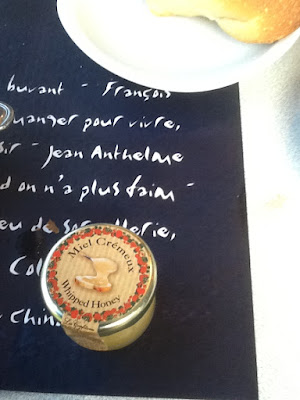This blog may help people explore some of the 'hidden' issues involved in certain media treatments of environmental and scientific issues. Using personal digital images, it's also intended to emphasise seasonal (and other) changes in natural history of the Swansea (South Wales) area. The material should help participants in field-based modules and people generally interested in the natural world. The views are wholly those of the author.
Sunday, 10 November 2024
Honey, Honey!
DNA profiles have been developed to test the authenticity of honeys. Ninety percent of UK samples, failed such tests. The failure rate of honeys from UK supermarkets, was strikingly high. The honey trade body has counter claimed that the supermarket product is 'of high quality'. They have expressed doubts about the validity of the DNA tests. The suspicion remains in minds of some folk, however, that certain supermarket products have been 'bulked out' with cheaper sugar syrup (https://www.theguardian.com/food/2024/nov/09/nine-in-ten-honey-samples-from-uk-retailers-fail-authenticity-test). It can be argued that it really doesn't matter, so long as the supermarket 'honey' is a safe product. Honey has, however, often been championed on the basis of its 'naturalness'. Some of the claims are almost mystical. There's no good reason, however, why a premium should be paid for a cheap, concocted item. It's suggested that honeys should specify their country (countries?) of origin. Their labels should also give more detail on production methods. This seems entirely reasonable.
Subscribe to:
Post Comments (Atom)
-
I n the UK and US, a pparently popular and successful vegan/vegetarian restaurants are reportedly closing or adding meat to their menus ( ...
-
Early ripening fruit may seem convenient but some folk think it confirms environmental stress. There's also a possibility th...



%20mating%20NWCW.jpg)


No comments:
Post a Comment